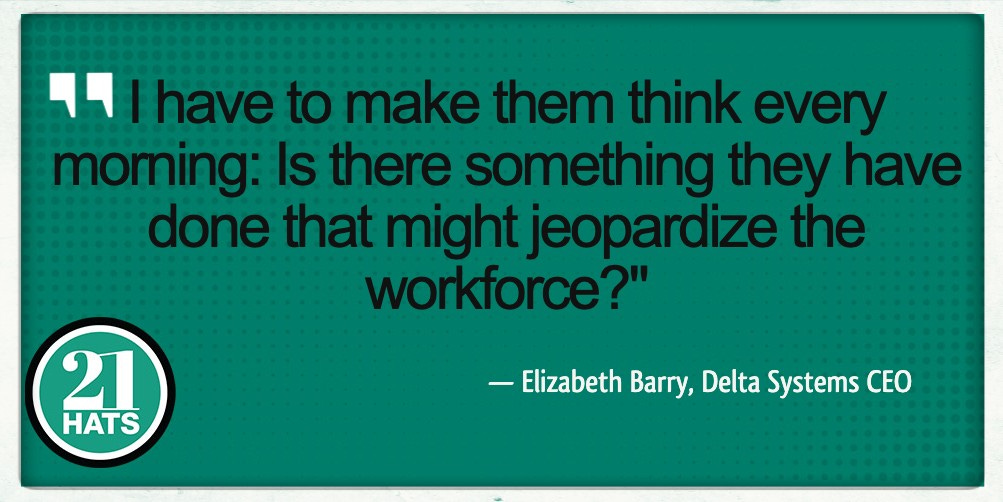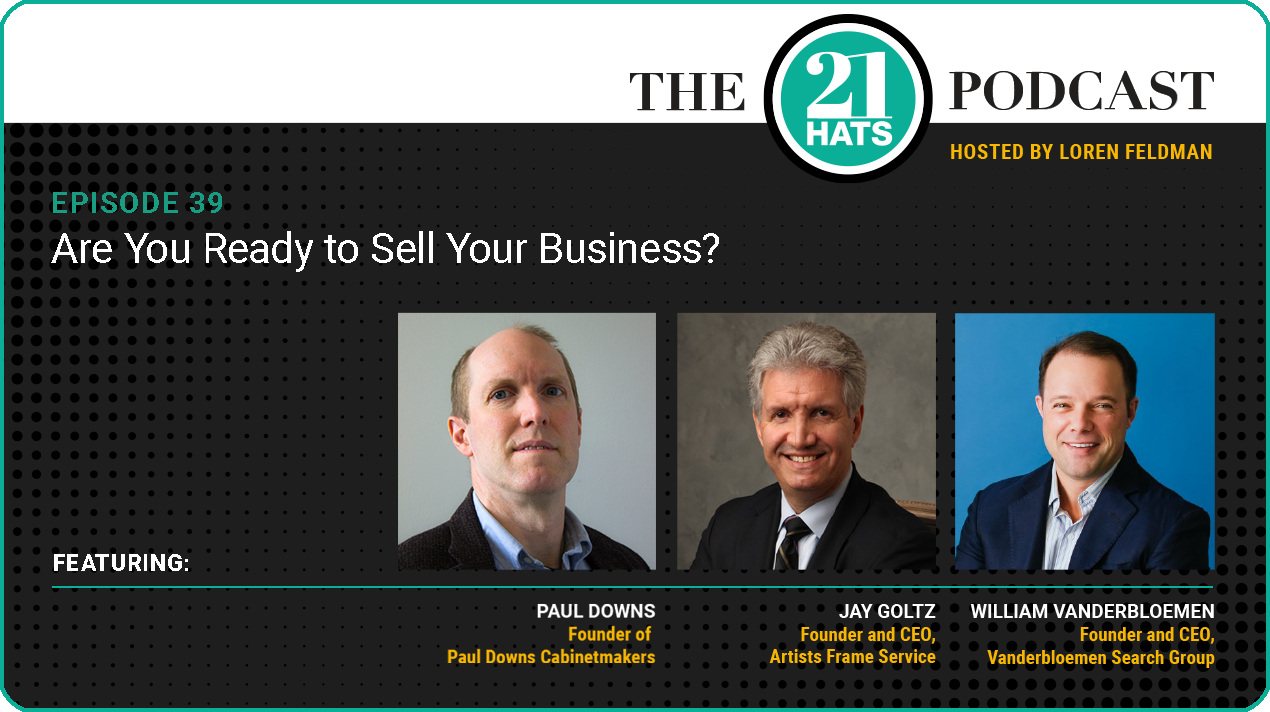Assessing San Francisco's CEO Tax
You Can Buy Buc-ee’s Online (But Not From Buc-ee’s). Can Allbirds Keep the Tech Bros? And Should Companies Police Employee Behavior?
TAXES
What will San Francisco’s CEO tax accomplish? “Last week, voters in San Francisco passed a bevy of new taxes aimed at the top of America’s income brackets. The most striking is Proposition L, informally dubbed the ‘CEO tax.’ By targeting businesses with highly paid executives and low-paid workers, it won approval with a resounding 65 percent of votes. ... In 2016, Portland approved its own tax, the first major city to do so. It imposed a minimum 25 percent surtax on public companies with pay executive-worker pay ratios above 250 to 1. So far, Portland has seen neither lower executive pay (nor businesses fleeing the city). That’s likely because the tax is too small to affect executive compensation for most companies: About 153 companies made median payments of just $3,900.”
“Despite San Francisco’s reputation for tech wealth, technology firms where median incomes can sit comfortably in the six-figure range are unlikely to be hit by the new tax.”
“The largest share, in fact, will come from retail and finance, each of which is predicted to account for 23 percent of total tax revenues.”
“SPUR estimates a company with a CEO who earns $13 million and workers with median salaries of $65,000 annually will owe $200,000 under the new tax scheduled to go into effect in 2022.” READ MORE
STARTUPS
Even with the pandemic surge in takeout, DoorDash has remained unprofitable:“DoorDash was a clear winner of the pandemic. It reported revenue of $1.92 billion in the nine months through September, more than 200 percent above the $587 million for the same period last year, according to the prospectus filed for its planned initial public offering. It had 543 million orders through September, compared with 181 million in the same period last year. Even so, the company continued losing money. Its net loss in the first nine months of this year was $149 million, compared with a loss of $533 million a year earlier.”
“DoorDash’s deep losses reflect the dismal economics of the food delivery business, said Len Sherman, an adjunct professor at Columbia Business School.”
“‘There’s simply not enough value created in these businesses to reward consumers, couriers, restaurants, employees and shareholders,’ he said.” READ MORE
In New York, the pandemic has spawned a wave of bakeries: “In eight months, New York has gone from a nadir of panic-deplenished grocery shelves to a metropolis flush with sheets of artisanal focaccia, bushels of bialys, and homemade English muffins. While food insecurity persists, much of it caused by jobs lost during lockdown, some laid-off cooks have tried to support themselves by launching their own cottage industries and selling their goods on Instagram. The pandemic might have forced these kitchen workers off traditional career paths, but it also gave them opportunities to experiment creatively, channeling their heritage into confections like Korean hotteok, Filipino doughnuts, and Chinese mooncakes.” READ MORE
Since Buc-ee’s won’t do it, a startup is selling snacks from the iconic Texas convenience store online: “After attempting, with no success, to reach out to Buc-ee’s executives about developing a web platform for them to sell their products online to customers around the country, [Chris] Koerner opted to take matters into his own hands. This week he launched TexasSnax.com, a sort of bootleg online Buc-ee’s store, where customers who long from afar for their Beaver Nuggets or Chili Limón Pork Rinds can place an order. Koerner—whose e-commerce background includes running the business-to-business platform SendEats.com—will then dart off to the nearest Buc-ee’s, purchase any of its 282 nonperishable products at the full retail price, ship it to the nugget-craver, and gross a slim markup of roughly 20 percent per item. He says his take is closer to 10 percent after all his expenses are factored in.”
“He was inspired to get into the bootleg Buc-ee’s business by a similar venture, the ill-fated Pirate Joe’s, which resold Trader Joe’s products purchased in Seattle to consumers in Vancouver, British Columbia, where the company has no stores.”
“Koerner hopes that the site will do enough business that the slim profit margin still helps his company succeed—but he also acknowledges that the project is a kind of backdoor pitch to Buc-ee’s leadership, who he says didn’t respond to his cold calls and emails offering his services.”
“Buc-ee’s, meanwhile, seems content to let Koerner test the waters for the nationwide mail-order snack market.” READ MORE
MARKETING
Can Allbirds keep Silicon Valley’s tech bros? “The vertical-retail sneaker company burst out of the Bay Area, the epicenter of disruptive startup culture, better known for Apple, Uber and Facebook than shoe brands. Allbirds had ‘a different type of business model, a different approach to materials,’ said co-founder Tim Brown, which appealed to app developers and venture capitalists obsessed with innovation. The allegedly more eco-friendly wool fabric also reeled in nature-loving coders who might pride themselves on taking walks through the Redwoods or biking in Napa on weekends.”
“It seems Allbirds’s stranglehold on Silicon Valley might be loosening.”
“Among the rivals gaining strength: Atoms, a similarly subtle sneaker startup that offers quarter-sizes, an effective marketing hook; Veja, an eco-signaling shoe label; and Greats, whose $179 direct-to-consumer Italian-leather Royale shoes are proving enticing to ‘the slightly older, more affluent demographic,’ according to Mr. Nakhuda.” READ MORE
SPONSORED
How to get results from videos on social media: Facebook, LinkedIn, and Google have changed which posts they show first and how often. Their algorithms now prioritize videos (perhaps to keep up with TikTok and Instagram); Google now includes YouTube previews above traditional search engine optimization in what marketers have dubbed Position Zero. “Because they’re so easy to watch, like, share and forward, videos are now the No. 1 source of ‘word-of-mouse’ referrals,” says Vikram Rajan, co-founder of Videosocials. LEARN MORE HERE
THE COVID ECONOMY
Companies are grappling with how to keep employees safe: “Delta Systems Inc., a maker of components for outdoor power equipment, thought it had all the proper safety measures in place. The Streetsboro, Ohio, company gives workers the option of cloth masks or plastic face shields. It checks employees’ temperatures daily and asks a handful of questions—about out-of-state travel, exposure to someone diagnosed with the virus and changes in their own health. But after cases jumped again in Ohio and two of Delta’s roughly 200 employees tested positive for the virus in recent weeks, executives have begun looking at next steps.”
“Delta is now weighing whether and how to ask employees if they have associated with people outside their bubble when they aren’t at work.”
“'It is probably none of my business what people do outside of Delta,’ [CEO Elizabeth Barry] added. ‘The other side of it is that I have to make them think every morning: Is there something they have done that might jeopardize the workforce?’” READ MORE
The hundreds of tourist shops in New York City are seeing few tourists: “Like many souvenir stores in New York City, Memories of New York in Manhattan is packed with shirts. They bear the logos of the Yankees and select subway lines, images of the Brooklyn Bridge and, of course, the familiar ‘I ❤️NY’ insignia that is a staple of city souvenir shops. The store’s owner, Alper Tutus, said shirt sales are vital to his business. But since he reopened in August after closing in March because of the city’s coronavirus lockdown, he hasn’t sold a single one. ‘Right now, it is absolutely zero sales, nobody’s buying,’ said Mr. Tutus, 75, who opened the shop in the Flatiron neighborhood 25 years ago.”
“Mr. Tutus said he recently renewed his lease at $70,000 per month for his 6,000-square-foot shop. But with no real revenue, he has struggled to pay his rent.” READ MORE
With the latest coronavirus surge, public officials are warning that it will takepervasive new measures to restrain it: “In earlier surges, infections were concentrated in cities such as New York and Chicago, or populous states like Florida and Texas. Many of the outbreaks then were linked to travelers returning from overseas or so-called super-spreading events such as conferences, weddings and rallies. Now, it is everywhere. People are becoming infected not just at big gatherings, but when they let their guard down, such as by not wearing a mask, while going about their daily routines or in smaller social settings that they thought of as safe—often among their own families or trusted friends.” READ MORE
REAL ESTATE
The coronavirus is propelling the real estate industry into the future: “Location matters less, now that the office is the kitchen. Size matters more, now that everyone is at home. And the best way to justify exorbitant prices is no longer the building’s amenity package — it’s peace of mind walking from the lobby to the living room. These are the touch points for a host of new or newly valuable technologies emerging in the post-Covid housing market, from rent-regulated apartments to luxury condos. They range from robotic furniture that reimagines itself inside our shrinking walls, to contactless apps designed to bring neighbors together. They are futuristic takes on prosaic features, like ultraviolet wands in air ducts and ‘Ghostbusters’-inspired blasters to hose down Amazon boxes. Some may be passing fads.” READ MORE
VENTURE CAPITAL
New research suggests that startup founders may not be as important as we think: “In a survey of 470 start-up founders and CEOs, Harvard Business School professor Tom Eisenmann found that personal attributes including age, education, and personality traits had no significant connection to the valuations of early-stage companies. This is in opposition to previous research and the common thinking among venture capitalists, who often frame their investment strategy as backing the jockey over the horse. According to Eisenmann, however, ‘pretty much none of this stuff moved the needle.’”
“Eisenmann did find some factors that appeared to be statistically significant for early-stage start-up success. These included companies with ‘lean start-up’ management practices, an approach that focuses on discovering quickly whether or not a business model is viable.”
“Other factors that had a significant positive impact were having professionalized human resources functions and high confidence in the company’s profitability.”
“Meanwhile, variables such as whether founders had an MBA and if they had earned any degrees from an elite university did not appear to matter — which was ironic for Eisenmann, who teaches aspiring entrepreneurs at Harvard Business School.” READ MORE
THE 21 HATS PODCAST
Episode 39: Have you had enough?This week, Paul Downs, Jay Goltz, and William Vanderbloemen assess the damage of a stressful year. We started with the impact the year has had on the value of their businesses. Then we discussed whether they would be ready to sell their businesses if a generous offer were to come along. That prospect, Jay tells us, would likely cause him to do some soul-searching, but he would consider it skeptically. It seems to be a well accepted fact, he says, that most people who sell their business end up regretting it. Plus: as we head into budget season, we find out whether the three owners are planning to give out raises.
You can subscribe to The 21 Hats Podcast wherever you get podcasts.
You can also LISTEN HERE
-- Loren Feldman (lfeldman@21hats.com)




